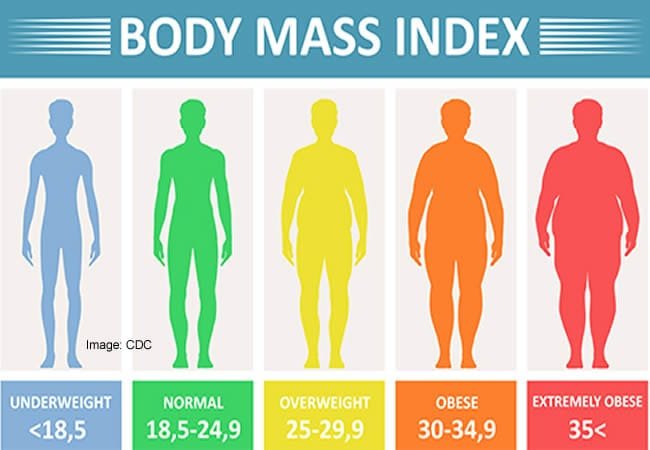[ad_1]
Sodiq Ojuroungbe
A new study has indicated that there is a significant relationship between body mass index and mortality, revealing that mortality risk increases linearly as BMI increases.
The study also countered some previous findings which suggested a survival benefit from overweight and lower levels of obesity in particular groups.
In what is known as the “obesity paradox,” a number of studies have suggested that obesity may prevent mortality in elderly people or those who have certain chronic diseases. Conversely, other researches indicate that a greater BMI raises the chance of mortality.
Experts say there have been different findings by researchers due to changes in the study design, participants’ weight history, and how lifestyle factors such as smoking and physical activity were evaluated.
However, a recent study reported by Medical News Today noted that sources of variation across BMI levels are likely associated with health and premature death.
The study, which was published by Population studies Open Access Journals revealed that “exposure to high BMI before the survey can lead to illness-related weight loss and reverse causation bias in estimates of the BMI–mortality association.”
The study was carried out by Ryan Masters, a social demographer and associate professor of sociology at the University of Colorado, Boulder of the University of Colorado Boulde.
The study analysed data from the National Health and Nutrition Examination Surveys 1988–94 and 1999–2006. Altogether, the data contained 17,784 cases of obesity and 4,468 deaths.
During his findings, Masters discovered that indicators of general adiposity and body shape were found to vary within BMI samples, and this variation was significantly associated with indicators of poor health, cardiometabolic diseases, and mortality risk.
The professor also found that more than 20 per cent of the sample with healthy BMIs were either overweight or had obesity 10 years before the study and that their health was noticeably worse than that of individuals whose BMI had remained healthy during that time.
He found that participants who had gained weight in recent years had significantly better health profiles than those who maintained higher weights for longer.
Prof. Masters further discovered that people who had recently put on weight had considerably better health profiles than those who had been carrying more weight for a longer period.
After adjusting for weight history and body fat and shape variables, he found that overweight and obese BMI levels strongly increase mortality risk in both younger and older adults.
Reacting to the study in a chat with Medical News Today, the chair of the World Thrombosis Day Steering Committee, and assistant professor of medicine at the University of Ottawa, Dr. Lana Castellucci, said the study emphasised the limitation of BMI reporting in surveys.
She added, “This study emphasises the limitations of BMI reporting in surveys. BMI is captured at a single point in time when someone completes a survey, and it does not consider how long people are at their current BMI. This leads to different types of bias, overestimation or underestimation, of the relationship between obesity and mortality.
“For example, if a person who recently gains or loses weight fills out the survey, the BMI recorded is at the time of the survey, and the weight changes may not be accurately considered in effects on health and diseases.”
Also, an endocrinologist and a Juniper spokesperson, Ramy H. Bishay, who was also not involved in the study, pointed out the drawbacks of relying on BMI.
Speaking with Medical News Today, Bishay said, “The utility of BMI in its ability to predict mortality has been in question for over 15 years, and it’s still regarded as a crude measure of obesity by most experts. BMI has many pitfalls, [especially for] lean, muscular individuals, older populations, and those with significant disproportionate fat distribution, the BMI is likely to be less useful.”
[ad_2]
Source link



